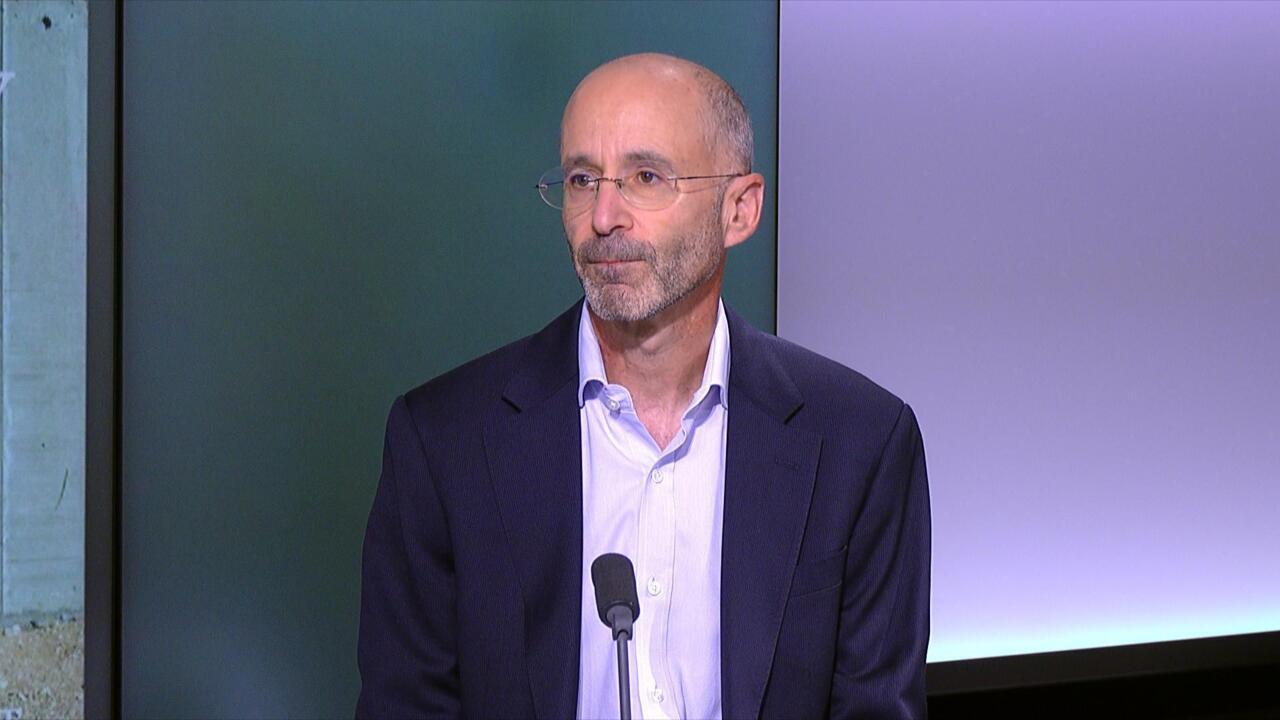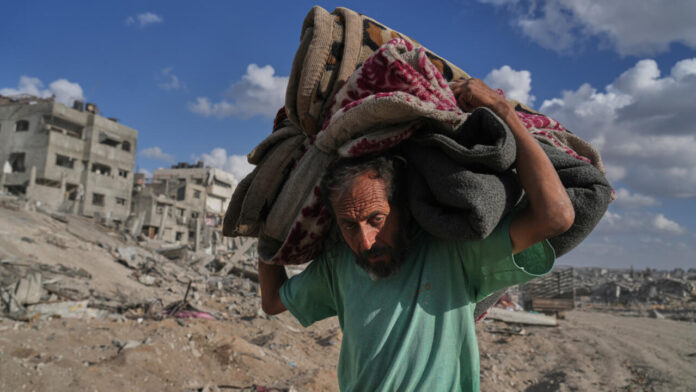Phase one of the truce deal brokered by US President Donald Trump and agreed upon by Israel and Hamas is under way.
Since Friday last week, a ceasefire has taken effect. The 20 remaining living hostages held in Gaza by Hamas have returned to Israel, and the remains of those who died soon followed. The almost 2,000 Palestinian prisoners set to be freed have been released. And more desperately needed aid should start trickling into the Palestinian enclave again sometime soon.
But the “historic dawn of a new Middle East” that Trump claims will ring in “peace for all eternity” is still a very distant prospect. And the future of the Gaza Strip hangs in the balance.
In Trump’s 20-point plan, he envisioned a Gaza initially governed by a temporary transitional committee made up of “apolitical” Palestinian technocrats that would be supervised by a so-called Board of Peace, spearheaded by Trump himself and involving former UK prime minister Tony Blair, a veteran Middle East negotiator.
Read moreThe key points: What is in Trump’s plan to end the Gaza war?
Governance would then theoretically be handed over to the Palestinian Authority once it enacts key reforms. Mahmoud Abbas, the president of the Palestinian Authority, attended an international summit on Monday in Egypt aimed at finalising an agreement on how to end the war in Gaza.
But Israeli Prime Minister Benjamin Netanyahu has already pushed back on the Palestinian Authority’s role in the plan and seems unlikely to accept it.
The Trump proposal also stipulates that Hamas would have no governing power in Gaza, but the group has said it expects to have some future role as part of a “unified Palestinian movement”.
And preceding all of this is the mammoth task of reconstructing the entire Gaza Strip, which has been devastated by two years of war.
To shed light on who could govern Gaza in the future, FRANCE 24 spoke with Anne Irfan, an expert on the modern Middle East and author of “A Short History of the Gaza Strip”, as well as a lecturer in interdisciplinary race, gender and postcolonial studies at University College London.
FRANCE 24: What do we know about the Board of Peace and the transitional committee that would temporarily govern Gaza?
All we know is that Trump’s plan is to have this apolitical technocratic committee overseen by the Board of Peace that he said would include qualified Palestinians and internationals. There are really big questions that still remain, like where does the Palestinian Authority fit into this? What about Hamas? How will members be selected? We also have not been given any information on how long this interim arrangement would be in place, or what would be needed to move on to the next stage.
It has been extremely vague, and that is a deliberate part of the strategy.
What have the reactions to this proposed framework been so far?
The point that has been made a lot is that it seems to have quite strong colonial overtures to it, particularly the involvement of Tony Blair. He is a very controversial figure in the Middle East and [his involvement] has raised comparisons to the British Mandate, which governed Palestine for 30 years prior to [the establishment of Israel] in 1948.
There has also been criticism from some Palestinian figures that the plan seems to be what some are calling the “remote control” of Gaza. Meaning it would not be led by people who are from Gaza, nor from people inside Gaza itself.
It would be a [major step] to see Gaza free of Israeli occupation for the first time since 1967, but that seems extremely unlikely. Israel’s Prime Minister Benjamin Netanyahu has said there will never be a Palestinian state on his watch, and the terms of the [plan] do not involve a full Israeli withdrawal from Gaza.
The only real positive for the people of Gaza is that Trump’s plan specified Palestinians would not be expelled from the enclave.
One of your browser extensions seems to be blocking the video player from loading. To watch this content, you may need to disable it on this site.

Is the Palestinian Authority well positioned to rule over the Gaza Strip?
The Palestinian Authority is extremely unpopular with the Palestinian people. Its leader, Mahmoud Abbas, was elected 20 years ago and his mandate has long expired. And the Palestinian Authority’s governance in the West Bank has not brought any benefits to Palestinians living there – they continue to lose land to Israeli settlers and the Israeli army still runs the occupied territory. There is very little that looks promising.
It is worth remembering that even in the West Bank, the Palestinian Authority is really only able to do what Israel will allow it to. We are not talking about an independent government. So that is the best model we have on offer, and there is nothing very good about it.
Does Hamas have any future governing the Gaza Strip?
The line was that there would be no role for Hamas, but even Trump is giving mixed signals on this. He said he had approved giving them a role in managing internal security operations in Gaza, at least temporarily. Trump framed this as a measure to prevent chaos. There is inconsistency on this point.
Hamas has not agreed to disarm. There were reports that they may agree to give up power in exchange for amnesty, but that has not been confirmed.
What we do know is that Israel has not succeeded in its stated aim of destroying Hamas. The very fact that the group agreed to a ceasefire shows they retain some power in Gaza.
At least for now, Hamas is still part of the conversation.
Will Palestinians in Gaza have any say on the governance of the enclave?
The Gaza Strip is almost completely destroyed. It is difficult to get past the huge numbers of people who are wounded, bereaved, homeless or traumatised.
Read more‘Put Your Soul on Your Hand and Walk’: Haunting tribute to Gaza journalist who refused a quiet death
Dissent exists, we did see protests against Hamas in Gaza in March this year. For a long time, Palestinians in Gaza and the West Bank have been calling for an end to the intra-Palestinian division and demanding elections. It is hard to imagine that demand has now disappeared.
But there doesn’t seem to be any suggestion of democracy coming into play here.
What we are seeing from this phase of the truce deal is that ultimately, it is the US who has the real power to force things through.
This interview has been edited for length and clarity.
Source link






